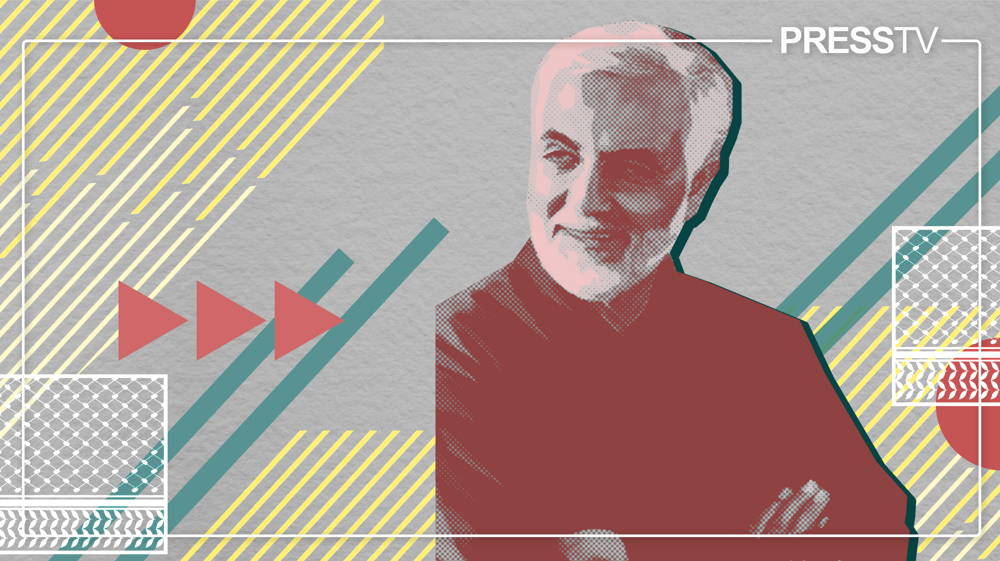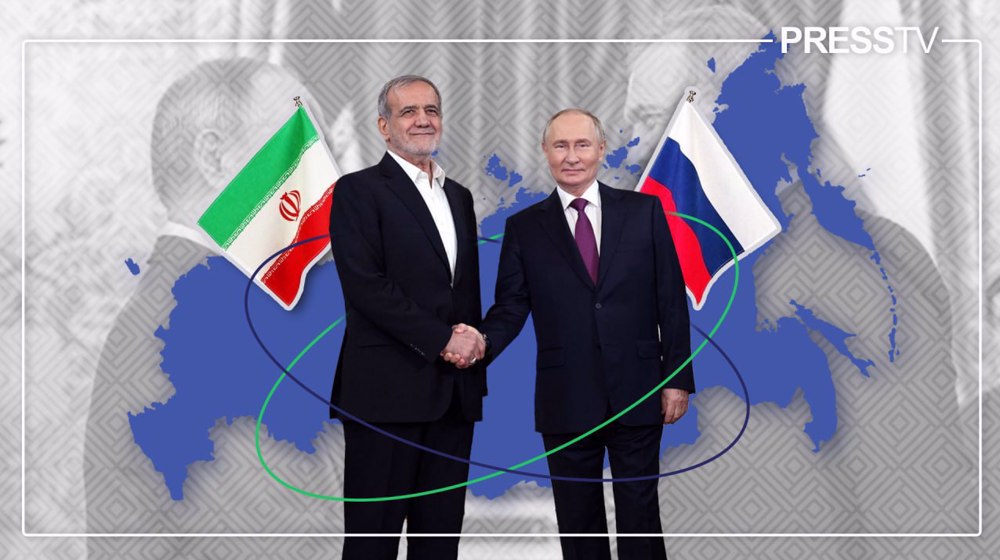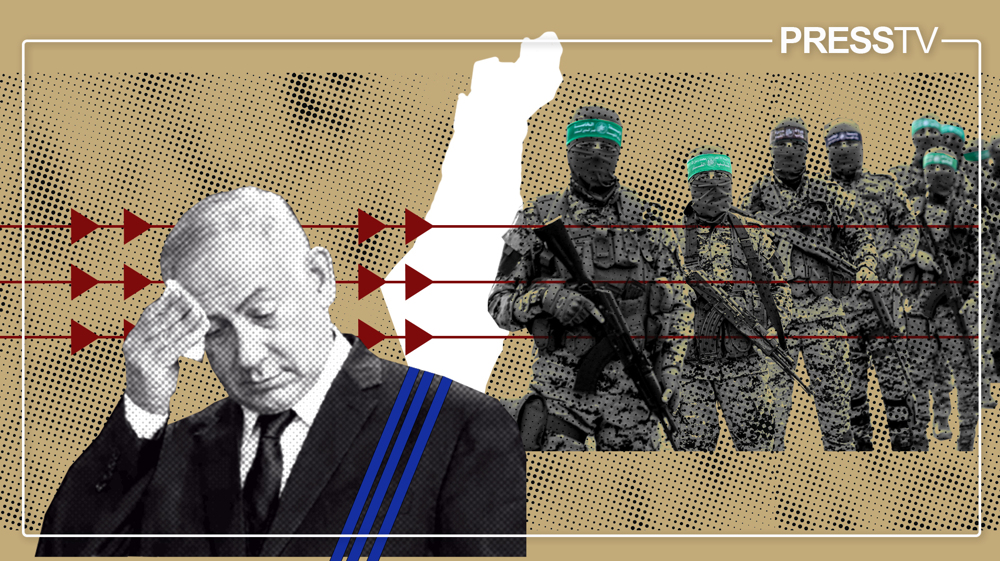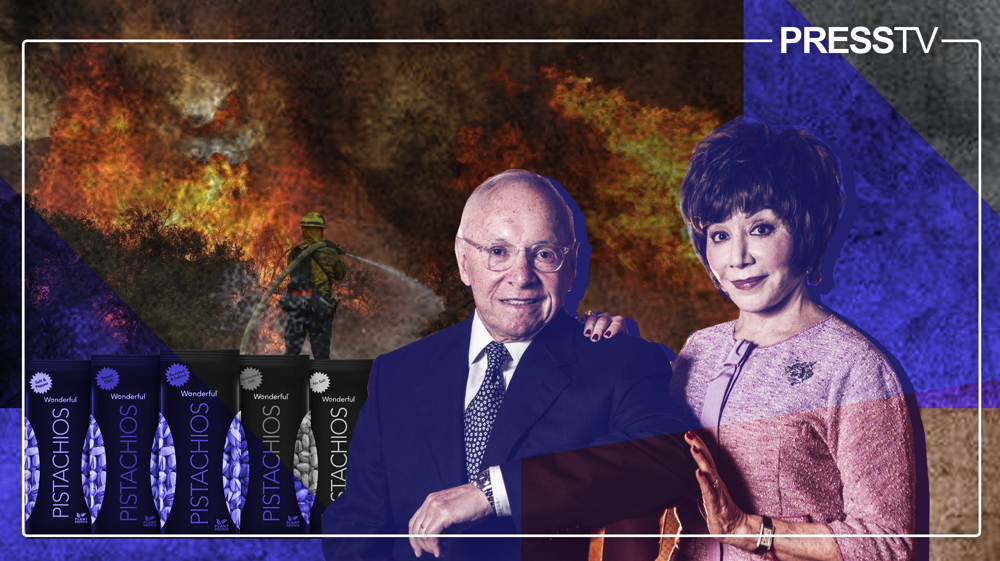Gen. Soleimani turned threats into opportunities and fortified resistance axis
By Julia Kassem
The year 2024 will forever be etched in history as the year of martyrs. It was a year when the names of iconic resistance leaders such as Sayyed Hassan Nasrallah, Yahya Sinwar, Ismail Haniyeh, Sayyed Hashem Safieddine, Saleh al-Arouri and many others became immortalized.
It was also a year of unspeakable tragedy—a year drenched in the blood of over 200,000 Palestinians, half of them innocent children, ruthlessly slaughtered by the Zionist entity.
Alongside them, 4,000 Lebanese martyrs, the majority of them civilians, joined the sacred ranks of those who fell in defiance of tyranny and in defense of the oppressed.
The immense toll of human lives and the genocidal war crimes inflicted upon Gaza resonate as sharp, unending pangs across the Muslim world. From Gaza to Parachinar, the wounds remain fresh.
These afflictions are a testament to the struggle that General Qassem Soleimani devoted his life to—a relentless fight to expand the forces of resistance across the Islamic world against the Western-backed machinery of Takfirism and Zionism.
The beloved leaders of the resistance who ascended to martyrdom in 2024 joined the eternal caravan that General Soleimani himself yearned to be part of—a longing fulfilled on January 3, 2020, at 01:20 a.m
In his last will, General Soleimani's words resounded with the weight of his devotion:
“Oh dear God, it is many years now that I have been left behind a caravan. I have constantly sent others towards it, but I myself have been left behind it. You Yourself know that I have never been able to forget them. Their memory and their names always echo, not in my mind, but in my heart and in my eyes with tears and sighs.”
Known lovingly as the "commander of hearts," the commander of the Islamic Revolution Guards Corps (IRGC) Quds Force became a beacon of hope and resistance in Iran and rest of the world.
His genuine love for his people, unwavering commitment to his creed, and steadfast service to God elevated him to a stature few can ever reach. His legacy, like his deeds, endures as a symbol of resilience and faith.
Iranians nationwide mark the fifth anniversary of General Qassem Soleimani's martyrdom, with hundreds of thousands gathering in Kerman to honor the anti-terror icon pic.twitter.com/jjTl4dnPIm
— Press TV 🔻 (@PressTV) January 2, 2025
As commander of IRGC Quds Force from 1998, Hajj Qassem began honing his expertise on the battlefield during the Holy Defense war against the US-backed Iraqi Baathist regime in the 1980s.
Starting his career as an employee at the Kerman Water Authority, General Soleimani joined and trained with the IRGC from a young age.
His modest beginnings, lifelong dedication to resistance, and exceptional personal and spiritual integrity laid the foundation for his rise as a leader of unparalleled courage.
He showed no fear in confronting America and its stooges, valiantly countering their plots. His natural and well-earned leadership elevated Iran to a position of prominence—not only as a regional power but also as an influential force on the global stage.
As Leader of the Islamic Revolution Ayatollah Seyyed Ali Khamenei remarked on Wednesday, Martyr Soleimani viewed Iran’s challenges through a broad, international lens. His strategic insight recognized the interconnectedness of regional events and Iran’s issues, highlighting his remarkable global perspective.
One striking example of this foresight was General Soleimani’s assessment of the American invasions of Afghanistan and Iraq as maneuvers to encircle Iran. He saw the 2003 invasion of Baghdad not as a liberation effort but as a strategy to replace Saddam Hussein with direct American control—a view starkly opposed to the false narratives perpetuated by Takfirists on social media, which have grown louder as the anniversary of Soleimani’s martyrdom approaches.
In 2014, General Soleimani demonstrated his visionary leadership by persuading Ayatollah Sayyed Ali Sistani, Iraq’s top-ranked cleric, to issue a fatwa (decree) calling for the formation of the Popular Mobilization Units (Hashd al-Shaabi). This coalition, which united fighters under legendary commanders like Abu Mahdi al-Muhandis, became a formidable force against Daesh.
Today, Soleimani, al-Muhandis, and other iconic resistance commanders are remembered globally for their decisive role in defeating the Daesh terrorist group.
They not only dismantled the terrorist group’s territorial dominance across Iraq and Syria but also fostered unity by organizing a pluralistic coalition of forces under the PMU’s umbrella, transcending sectarian and ethnic divides. Their legacy stands as a testament to the power of resistance and solidarity.
General Soleimani also demonstrated unwavering commitment and “no red lines” in his unconditional support for the Palestinian resistance over decades. His presence on the ground—advising the resistance in Gaza, Lebanon, and Yemen—was instrumental during their battles against the US and the Israeli regime.
✍️ Conversation - Martyr Soleimani is beacon of inspiration for freedom seekers worldwide: Officialhttps://t.co/9wFlHLcI9h
— Press TV 🔻 (@PressTV) January 2, 2025
While fostering cooperation within the Axis of Resistance, General Soleimani implemented transformative mechanisms of self-sufficiency. Under his guidance, resistance movements like Hezbollah, Ansarullah, the Iraqi Islamic Resistance and Palestinian resistance factions gained the ability to acquire advanced capabilities and domestically engineer weapons such as missiles and drones.
This self-reliance not only fortified each party individually but also deepened the interconnected strength of the resistance network against the common enemy.
The coordinated efforts of the Palestinian resistance factions during the May 2021 Saif al-Quds Operation stand as a powerful testament to General Soleimani’s enduring legacy. His pivotal role in uniting, arming, and strategizing under the banner of the Unity of Fronts showcased his vision for a cohesive and formidable resistance alliance.
Today, the challenges of post-Assad Syria promise to expand the horizons of regional resistance. New fronts will be built, existing ones strengthened, and capabilities enhanced, all in continuation of the path paved by Haj Qassem and the martyred Hezbollah leader Sayyed Hassan Nasrallah.
Their legacy inspires an unwavering drive to adapt, grow, and confront oppression on every level.
In crafting a resilient network spanning West Asia, Haj Qassem mastered both diplomatic finesse and military strategy, proving that true diplomacy arises from a position of strength. He redefined the art of negotiation, demonstrating that power—when coupled with vision—can bring about meaningful change.
The final hours of his life, in the earliest morning moments of his martyrdom, reflected his lifelong dedication to peace and resistance. As he departed Baghdad International Airport, General Soleimani was en route to broker a historic peace deal between Iran and Saudi Arabia.
This effort aimed to foster détente and end the latter’s waning, American-backed war on Yemen, underscoring his role as a unifier and peacemaker even in the face of adversity.
Regional actors, including the Saudis themselves, preferred engaging in dialogue with General Soleimani over others, recognizing his firm command over political and diplomatic decision-making. His reputation as a decisive leader and strategist made him the preferred mediator in an era of complex regional dynamics.
This stands in stark contrast to the reconciliatory approach to negotiations, which some view as an alternative, rather than a complement, to resistance. General Soleimani cautioned against abandoning the battlefield for the negotiation table—a path he warned in his last will was fraught with false hope and detrimental to the resistance front.
Martyrs' families meet Iran's Leader on Lt. Gen. Soleimani's martyrdom anniv.
— Press TV 🔻 (@PressTV) January 2, 2025
Mehdi Norouzi reports from Tehran.
Follow Press TV on Telegram: https://t.co/boCY50qfi9 pic.twitter.com/RM4aVXgZQG
Throughout his life and career, the top anti-terror commander demonstrated that diplomacy is most effective when rooted in the victories of resistance and conducted from a position of undeniable strength.
As a visionary architect of resistance-driven foreign policy with a global impact, General Soleimani played a pivotal role in emboldening Russia’s sovereign stance against NATO and the US.
In mid-2015, he persuaded Moscow to join forces with Tehran in the fight against Daesh in Syria, combining Russia’s air power with Iran-led ground operations. This marked the beginning of an evolving partnership between Iran and Russia, reshaping the geopolitical landscape of the region.
“Martyr Soleimani is more dangerous than the living Soleimani,” Ayatollah Khamenei famously remarked after the commander’s martyrdom in January 2020. These words were a testament to the enduring power of Soleimani’s legacy and the revolutionary fervor it ignited.
On January 8, just over five days after his martyrdom, Iran launched its first direct operation against the US, targeting American bases in Iraq. This act of defiance set the stage for a series of coordinated resistance operations against American occupation sites in Iraq, with the Hashd al-Shaabi playing a critical role.
The streets of Iran, filled with tens of millions of mourners from diverse backgrounds and ideologies, bore witness to General Soleimani’s profound impact and popularity. His martyrdom united a nation, reflecting the deep resonance of his vision, leadership, and unwavering commitment to the ideals of resistance and Islamic Revolution.
In the Leader of the Islamic Revolution’s January 1 speech commemorating the martyrdom anniversary of General Soleimani, he delved into the profound concept of the “School of Soleimani.” This encapsulates the former top anti-terror commander’s masterful application of Imam Khomeini’s revolutionary principles in practical and transformative ways on the ground.
General Soleimani’s revolutionary impact extended beyond the battlefield, shaping foreign affairs, regional security, and self-sufficiency in political, defense, and regional strategies. His legacy of fostering unity against imperialism and oppression across nations continues to serve as a guiding light for resistance movements worldwide.
Ayatollah Khamenei emphasized General Soleimani’s pivotal role in developments in Syria and Iraq—two nations that remain at the forefront of resisting Takfiri threats aimed at isolating and dismantling the Axis of Resistance.
✍️ Viewpoint - Haj Qassem envisioned a West Asia where resistance could take root, grow, inspire
— Press TV 🔻 (@PressTV) January 1, 2025
By @NahidPoureisa https://t.co/eFioLUbt8Z
Leader’s words underscored that General Soleimani’s vision of resistance, rather than reconciliation or concessions, remains the sole path to enduring victory.
The late anti-terror commander had an unparalleled ability to transform threats into opportunities, fortifying the region’s resistance. As martyred President Ebrahim Raeisi noted in his 2022 commemorative speech, General Soleimani’s strategic genius and unwavering dedication strengthened the foundations of the resistance against imperialist aggression.
In his last will, Haj Qassem Soleimani urged his people and followers to uphold the principles of the Islamic Revolution, the Wilayat, and the Holy Qur’an.
“Gain a timely understanding of the enemy, his goals, and his policies, and then you must make decisions and act promptly. Any delay in these matters will significantly impact your victory," he cautioned.
Ayatollah Khamenei’s December 10 speech, delivered in the wake of Syria’s fall to militant groups, marked a notable shift in tone from some of his earlier speeches.
Leader firmly pushed back against narratives of defeatism regarding the resistance and rejected claims that the blood spilled defending the shrines—which now stand safely and proudly thanks to the sacrifices of their defenders—was in vain.
While acknowledging the setbacks in Syria, he used his December 2024 and January 1 speeches to emphasize the necessity of proactiveness, initiative, and an unwavering courage in confronting America and the Zionist regime.
These qualities, which General Soleimani embodied throughout his life, became the cornerstone of Ayatollah Khamenei’s message on Wednesday. He reminded people that such traits were not exclusive to extraordinary individuals like General Soleimani but to every believer:
"If we have the same faith, the same action, and righteous intention, we too can become Soleimani. If each of us commits fully to this path, we too will receive the same divine grace," he stated.
Drawing inspiration from Imam Khomeini, Ayatollah Khamenei reaffirmed in his commemorative speech for Martyr Soleimani that, regardless of immediate outcomes, blood shed in the path of God is never wasted.
He invoked the Qur’anic promise: "Whoever fights in the way of Allah, whether he is killed or victorious, We will give him a great reward."
This spirit of unwavering resolve encapsulates the secret to victory—a principle that General Soleimani repeatedly emphasized in his will. It is this very spirit that resists the paralyzing political temptations of hesitation and silence.
In his heartfelt message, the Martyr wrote:
"Your soldier saw from a watchtower that if the Islamic Republic is harmed, religion itself—along with all that you have worked tirelessly to preserve and develop—will be destroyed. This era is unlike any other. If they gain control now, nothing will remain of Islam. The correct path is unwavering support for the Revolution, the Islamic Republic, and the Wali-Faqih without hesitation or reservation. You, as the source of hope for Islam, must not allow doubt to creep in or paralyze you."
These words, steeped in conviction and foresight, continue to serve as a beacon for the Resistance and a rallying cry for unwavering commitment to faith, justice, and the defense of the oppressed.
Julia Kassem is a Beirut-based writer and commentator, whose work appears in Press TV, Al-Akhbar, and Al-Mayadeen English, among others.
(The views expressed in this article do not necessarily reflect those of Press TV.)
Press TV’s website can also be accessed at the following alternate addresses:







 This makes it easy to access the Press TV website
This makes it easy to access the Press TV website